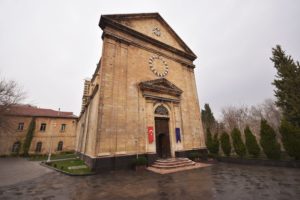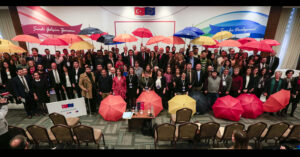
Technical Assistance for Implementation of Civil Society Dialogue and Civil Society Support Programmes (TR2015/DG/01/A5-01/001)
The overall aim of the project is to increase bilateral exchanges and cooperation between CSOs in Turkey and the EU at local, regional and national levels, to promote awareness raising initiatives on importance and benefits of membership of Turkey to the EU within Turkey and EU and on

Technical Assistance for EU-Turkey Anatolian Archaeology and Cultural Heritage Institute
The project is intended to improve intercultural dialogue between Turkey and the EU by protecting and promoting items of common cultural heritage and by strengthening civil society dialogue on such matters. It will improve access to the archaeological heritage and historical works of ancient Anatolian civilizations by identifying,

Technical Assistance for Support to the Local Human Rights Boards and Women’s Rights Awareness
Despite laws being passed in the 1990s to eliminate discrimination against women and a law to protect survivors of domestic violence being enacted in 1998, the country lags behind in implementing its national and international gender equality commitments. Women in Turkey continue to face challenges, with gender-based violence

Technical Assistance to Implementation of Civil Society Support Programme
The overall objective of the project is to support the development of civil society through more active democratic participation in policy and decision making processes and by promoting a culture of fundamental rights and dialogue.

Technical Assistance for Result Oriented Monitoring in Turkey-Phase III
Within the scope of this project, we are aiming to ensure efficient and effective of IPA II assistance with a view to better achievement of the objectives set out in the Indicative Strategy Paper of Turkey (2014-2020) and assist NIPAC to fulfil his extended monitoring responsibility.

Technical Assistance for Promoting Social Inclusion in Densely Roma Populated Areas
It’s an obvious fact that there is a need to increase social inclusion in heavily populated areas, particularly in Rome, mainly by facilitating their entrance into the formal labour market. Within this context, the project aimed to support Rome’s population by improving the quality of education delivery, vocational

